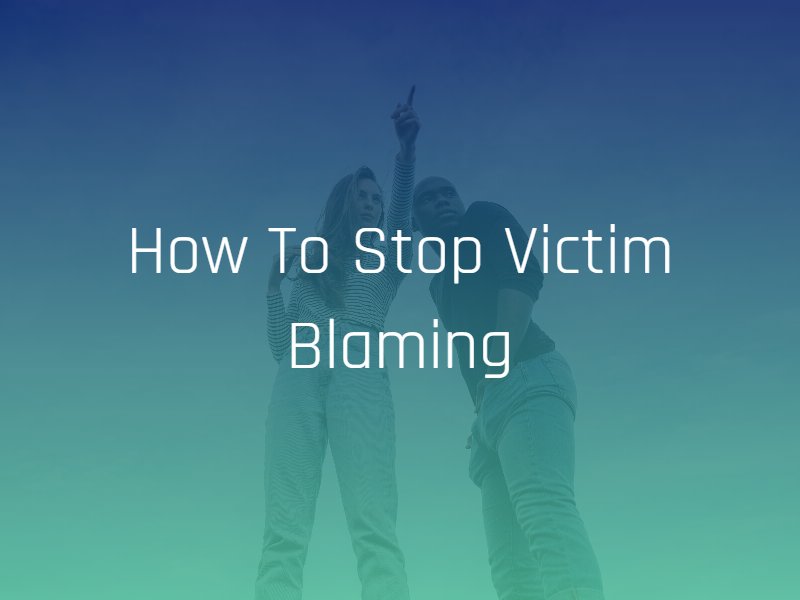Victim blaming is pervasive and harmful to survivors of sexual violence. This act occurs when someone blames a survivor for his or her own sexual assault, instead of rightfully placing the blame on the perpetrator of that act. Victim blaming can take many different forms, but it is the responsibility of advocates, friends, and family members of survivors to end this harmful practice.
What Does Victim Blaming Look Like?
Victim blaming refers to any statement or action that suggests a survivor is responsible for the assault, rather than the perpetrator. This harmful act can come in many different forms, from questioning what a survivor was wearing at the time of the assault to the previous relationship he or she may have had with the perpetrator.
Victim blaming may also occur if the survivor or perpetrator was using alcohol or drugs at the time of the assault. A person cannot give or obtain consent they are under the influence of alcohol or drugs. However, someone may claim a survivor was responsible for the assault because he or she was drinking too much, or that the perpetrator was under the influence at the time of the assault and didn’t know what he or she was doing. The presence of alcohol or drugs is just one example that highlights the double standard survivors often face.
Victim blaming comments do not need to concern the survivor to be victim blaming. Lauding the perpetrator, claiming he or she is a good person and wouldn’t commit sexual assault, or dismissing the claims of the survivor based on an existing relationship with the perpetrator are also acts of victim blaming.
Preventing Victim Blaming in Your Community
If you have someone in your life who recently experienced sexual assault and is coming to you for support, victim blaming can be incredibly harmful. This act can prevent the survivor from seeking the help he or she needs following sexual violence. To avoid victim blaming behaviors when talking to your loved one, follow these tips.
- Listen actively to the survivor’s story and do not interrupt him or her while speaking.
- Do not ask questions about what he or she was wearing, drinking, using, or doing with the perpetrator prior to the assault. These can easily come off as victim blaming.
- Do not defend the perpetrator, even if this news comes as a surprise to you. Very few reports of sexual assault are false, and anyone can commit sexual violence, even people who may seem nice or good.
- If the survivor seems relaxed, calm, or not reacting to the traumatic event in the way you think he or she should, remember everyone processes trauma in a different way. There is no such thing as the perfect or ideal victim.
You should also speak up and intervene when you witness victim blaming behaviors happening. If there’s a story on the news about a sexual assault and a family member makes a comment about what the survivor was drinking, for instance, remind this person that assault is never the survivor’s fault.
Explain what you know about victim blaming and how it is harmful, and never let these comments pass without consequence. Victim blaming is pervasive in our culture, and it is important to speak up whenever we see it happening to help end this harmful practice.
Seeking Help for Sexual Assault
Are you struggling with the aftermath of sexual assault? You are not alone, and help is available. Contact your local sexual violence resource center to find support near you, such as mental health treatment, support groups, and forensic sexual assault exam locations. Once you receive initial treatment, contact a sexual assault lawyer to discuss your story and strategize your next steps.

